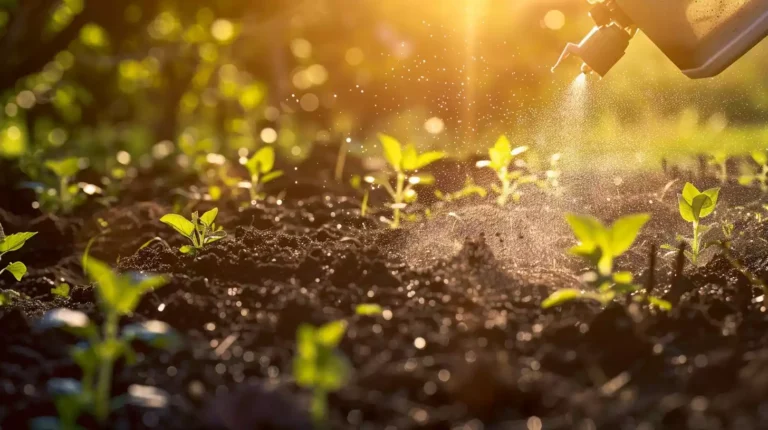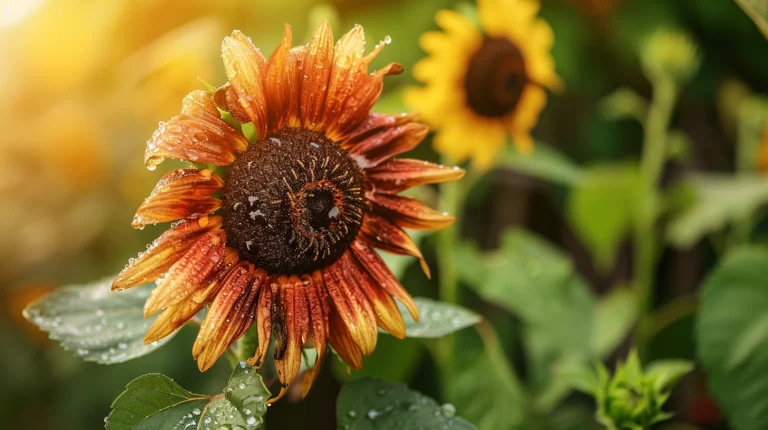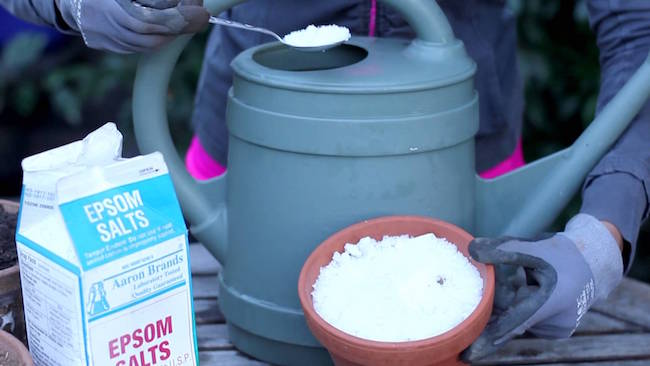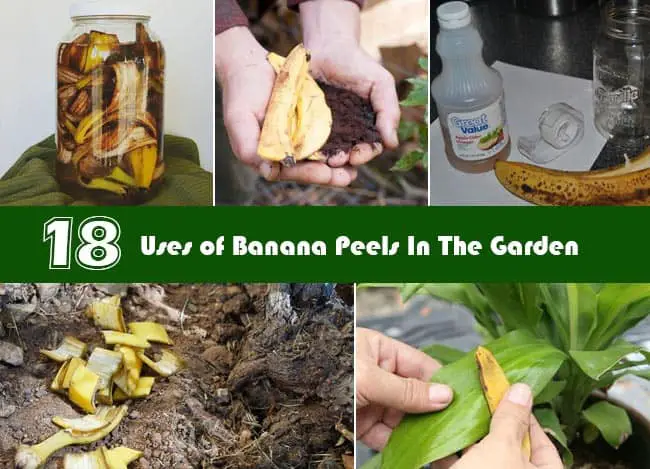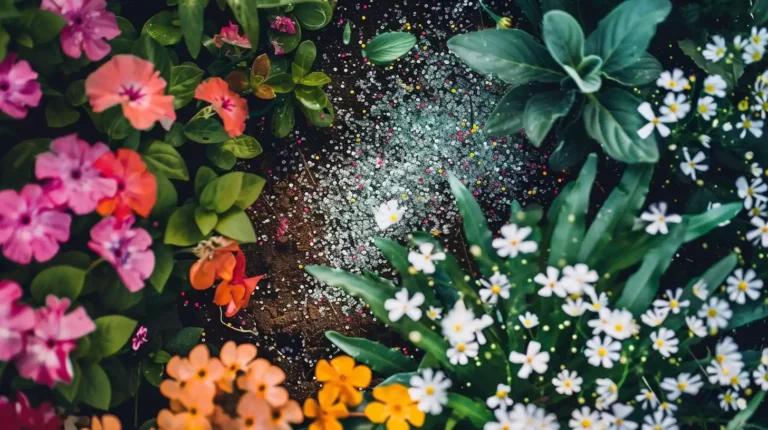Do Squirrels Eat Sunflowers?
Do you find yourself fascinated by squirrels? Well, get ready to dive into the intriguing world of the sunflower-squirrel connection as we debunk the myths surrounding them.
In this blog, we will explore the allure of sunflowers for squirrels and uncover common misconceptions about their relationship. We will also decipher squirrel behavior, including their diet preferences and love for sunflower seeds.
And finally, we’ll touch on other creatures that find sunflowers appealing, such as bees and butterflies attracted to the flower heads. Get ready for an enlightening journey about the question: do squirrels eat sunflowers?
The Sunflower-squirrel Connection
Contrary to popular belief, squirrels do not plant sunflowers. Their preference is to bury and save nuts for later, rather than planting flowers. Sunflowers also don’t serve as deterrents to squirrels in gardens or bird feeders.
While squirrels do enjoy eating sunflower seeds, they are not solely responsible for the popularity of this snack. Instead of trying to eliminate squirrels, providing them with their own food sources is a great way to prevent damage to other plants.
By understanding the true relationship between squirrels and sunflowers, gardeners can appreciate both in their natural habitats.
The Allure Of Sunflowers For Squirrels
Sunflowers produce an abundance of seeds that are irresistible to squirrels, thanks to their high nutritional value, including a fix of sunflower seeds. In the colder months, sunflowers provide a convenient food source for squirrels, who are known to stash these seeds for later consumption.
The presence of sunflowers can attract squirrels to gardens and bird feeders, making them a popular choice for both humans and critters alike.
Gardeners may want to take precautions, such as using netting or fencing, to protect their sunflower plants from squirrels and other nuisance animals.
Overall, sunflowers offer a tasty treat and a valuable food source for squirrels in North America.
Common Misconceptions About Squirrels And Sunflowers
Contrary to popular belief, squirrels do not plant sunflowers intentionally. The presence of sunflowers in their habitat is usually a result of accidental seed dispersal.
While sunflowers are attractive and can provide a beautiful garden, they are not the primary food source for squirrels. Squirrels prefer nuts, seeds, and fruits over sunflower seeds.
However, if other food sources are scarce, squirrels may resort to feeding on sunflower seeds. It’s important to note that sunflowers can attract a variety of wildlife, including birds and bees, making them a valuable addition to any garden.
Deciphering Squirrel Behavior
Squirrels and other rodents have intriguing behavior patterns that are worth understanding. Contrary to popular belief, squirrels don’t actually eat sunflower seeds; instead, they stash them for later consumption. These intelligent critters also have a knack for problem-solving and adapting to their surroundings.
Additionally, squirrels play a crucial role in the ecosystem by dispersing seeds and aiding in forest regeneration. Despite their reputation, squirrels are not aggressive toward humans and pose no threat. It’s fascinating to observe how these omnivore creatures, including rodents, interact with their environment and contribute to its balance.
Diet Preferences Of Squirrels
Squirrels have a diverse diet, consuming various foods such as nuts, seeds, fruits, and vegetables. They are even known to raid bird feeders for seeds and nuts. Additionally, squirrels have been observed eating flowers, bark, fungi, and even garlic!
These critters are opportunistic eaters and will adapt their diet based on what is available, including wild animals.
To ensure a steady food source during lean times, squirrels often stash their food in different locations. This behavior highlights their resourcefulness and ability to plan ahead.
Squirrels And Their Love For Sunflower Seeds
Squirrels are highly attracted to sunflower seeds due to the abundance of fat and protein they contain. With their sharp teeth, squirrels can easily crack open the shells of sunflower seeds to access the nutritious kernels inside.
It’s common for squirrels to bury excess sunflower seeds as a food reserve for later, making them smart little critters when it comes to planning ahead.
However, squirrels can also become aggressive or territorial when defending their stash of sunflower seeds.
To discourage squirrels from targeting your sunflower seeds, consider providing alternative food sources or utilizing protective measures such as netting or fencing.
How To Discourage Squirrels From Raiding The Sunflower Garden?
To discourage squirrels from raiding your sunflower garden, the best way is to try using squirrel-proof bird feeders as a distraction. Install physical barriers like fences or netting to keep squirrels out.
Plant squirrel-resistant flowers and plants nearby to deter them. Consider placing motion-activated sprinklers or ultrasonic devices, such as streamers or a fake hawk, to scare away squirrels.
Eradicating Potential Squirrel Attractants
To prevent squirrels from feasting on sunflowers, it’s essential to remove fallen seeds and debris regularly, eliminating potential food sources. Avoid placing bird feeders near sunflower plants, as they can attract squirrels.
Installing squirrel-proof barriers like fences or netting around the garden acts as a deterrent, keeping these critters out. Planting squirrel-resistant flowers or herbs alongside sunflowers discourages them from entering the garden.
Additional measures include using squirrel repellents or deterrents such as motion-activated sprinklers or ultrasonic devices. By eradicating potential squirrel attractants, you can safeguard your sunflowers and enjoy their beautiful blooms without having to share them with these persistent pests.
Using a paper bag to cover the sunflower head can also prevent squirrels from accessing the seeds. Another potential pest to watch out for is spittlebugs, which can also damage sunflowers.
The Role Of Protective Barriers
Protective barriers, such as bird netting and baffles, play a crucial role in keeping squirrels away from sunflowers. Installing wire mesh or chicken wire as barriers can be highly effective in preventing these pesky critters from accessing sunflower plants.
It is essential to place the barriers at a height that is difficult for squirrels to reach, ensuring that they are securely fastened.
Additionally, using physical deterrents like scarecrows or reflective tape can further discourage squirrels from approaching the sunflowers. Regular inspection and maintenance of the barriers throughout the growing season are vital to ensure their continued effectiveness.
Natural Deterrents To Keep Squirrels At Bay
Planting marigolds or daffodils near sunflowers can deter squirrels with their strong smell. Sprinkling cayenne pepper or chili powder around the garden can deter squirrels from digging up sunflower seeds.
Placing a layer of chicken wire or netting over the sunflowers can prevent squirrels from reaching the seeds. Hanging wind chimes or aluminum foil strips near the sunflower garden can startle squirrels and keep them away.
Using motion-activated sprinklers or ultrasonic devices can deter squirrels by creating unexpected noises or vibrations.
Understanding the different parts of the plant, including the sunflower seeds, can help you protect your garden from pesky squirrels. These natural deterrents, including thorny plants, can help protect your sunflowers and keep pesky squirrels at bay.
Can Creating a Squirrel-Friendly Zone Help?
Creating a designated squirrel-friendly area can be a good idea to redirect squirrels away from areas where they may cause damage.
By providing squirrel feeders and planting squirrel-friendly plants like sunflowers, you can attract squirrels to specific locations. However, it’s important to find a balance between creating a squirrel-friendly area and protecting your property or garden from excessive squirrel activity.
Benefits Of A Dedicated Squirrel Feeding Area
Creating a dedicated squirrel feeding area in your garden can have numerous benefits. One of the main advantages is that it helps divert squirrels from other areas of your garden, reducing the chance of them damaging or eating your precious sunflowers.
Additionally, having a squirrel-friendly zone can provide you with an enjoyable wildlife viewing experience as you watch these critters feast on sunflower seed heads.
Furthermore, by offering a designated space for squirrels to feed, you contribute to maintaining a balanced ecosystem in your garden and reduce competition for other bird feeders in your yard.
It’s important to note that you should avoid feeding squirrels human food, as it can be harmful to their health and lead to an overreliance on human spit.
Choice Of Foods In A Squirrel-friendly Zone
To attract squirrels to a squirrel-friendly zone, it’s essential to provide them with a variety of foods. Squirrels have a preference for high-fat and high-protein foods like peanuts and sunflower seeds. However, it’s important to avoid feeding them unhealthy options like processed snacks or sugary treats.
To ensure a balanced diet, offer a mix of fresh foods and store-bought squirrel food. Experimenting with different types of foods can help determine the local squirrel population’s preferences. By providing a diverse range of nuts, seeds, and fruits, you can create an enticing food source for the squirrels in your squirrel-friendly zone.
Understanding The Impact On Sunflower Growth
Sunflowers are surprisingly adaptable and can thrive in various climates, debunking the myth that they only grow in hot areas. While they prefer full sun, sunflowers can still grow in partially shaded areas, although they may not reach their full potential.
Another misconception is that sunflowers attract more squirrels to gardens. While sunflower seeds can attract squirrels, gardeners can use deterrents or opt for squirrel-resistant varieties to manage this.
By understanding the impact of sunflower growth and addressing common myths, gardeners can enjoy the beauty of sunflower blooms without worrying about unwanted critters or the different types of flowers that can be grown alongside them.
Effect Of Squirrel Activity On Sunflower Health
Squirrel activity can have a negative impact on the health of sunflowers. These furry critters can cause damage to the stems and leaves of sunflower plants, ultimately affecting their overall well-being. Additionally, squirrels are notorious for digging up sunflower seeds, which can lead to poor germination or stunted growth.
Sunflower heads are particularly attractive to squirrels, who may steal or damage the seeds. To protect sunflowers from squirrel damage, gardeners can employ squirrel-proofing measures such as netting or repellents.
It is also important to monitor squirrel activity and take preventive measures to ensure the healthy growth of sunflowers.
Measures To Ensure Optimal Sunflower Growth
To ensure optimal sunflower growth, several measures can be taken. Proper irrigation is essential, providing consistent moisture without waterlogging. Adequate sunlight is crucial, so it’s important to position the sunflowers in a location where they can receive at least 6 hours of direct sunlight each day.
Fertilizing with a balanced fertilizer promotes healthy growth and vibrant blooms. Regular weeding helps prevent competition for nutrients and ensures optimal growth.
Additionally, providing support such as stakes or trellises can prevent sunflowers from toppling over in strong winds. By implementing these measures, gardeners can enjoy beautiful, thriving sunflower plants.
What Other Creatures Find Sunflowers Appealing?
Apart from squirrels, sunflowers also attract birds, bees, butterflies, and other pollinators. Birds are drawn to sunflower seeds as a food source, while bees and butterflies are attracted to the nectar and play a vital role in pollination. Additionally, small mammals like chipmunks and rabbits may also find sunflower seeds appealing.
Sunflowers And Their Popularity Among Birds
Sunflowers are renowned for their ability to attract a wide range of bird species, including finches, sparrows, and chickadees. These birds are drawn to sunflowers because of the abundance of nutritious seeds they offer.
In fact, sunflower heads can even act as natural bird feeders, providing easy access to the seeds. By planting sunflowers near bird feeders, gardeners can create an enticing oasis that attracts a greater variety of bird species to their backyard.
Additionally, sunflowers offer birds a place to perch and rest, making them a favorite choice for bird enthusiasts.
Are There Exceptions To Squirrels Devouring Sunflowers?
While squirrels are known to enjoy sunflower seeds, there may be exceptions. Gardeners have reported success in deterring squirrels from sunflowers using various methods.
Planting sunflowers in a location that is difficult for squirrels to access and using squirrel-proof bird feeders or natural deterrents like chili powder can help protect them.
Final Thoughts
It’s important to understand that while squirrels may be drawn to sunflowers, there are ways to discourage them from raiding your garden.
By eliminating potential attractants, using protective barriers, and implementing natural deterrents, you can minimize squirrel activity in your sunflower garden.
Creating a squirrel-friendly zone with dedicated feeding areas can help redirect their attention away from your sunflowers.
It’s also worth noting that sunflowers are not only appealing to squirrels, but they also attract birds, adding to the biodiversity of your garden.

